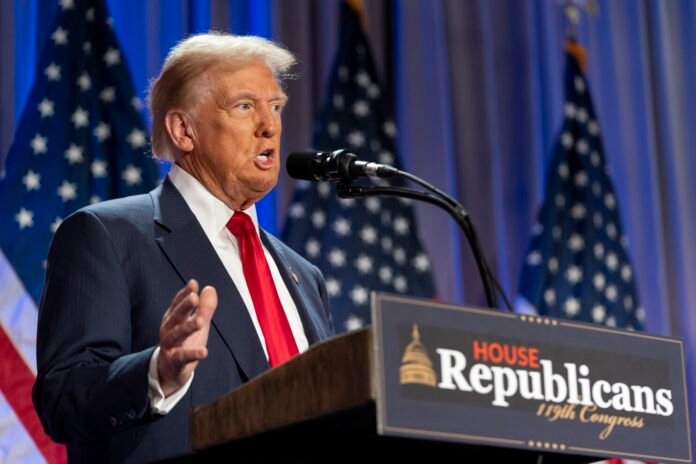Three weeks ago, U.S. President Donald Trump launched a trade war that could reshape global commerce. Now, economic forecasts and surveys will reveal the early effects of his decision.
The International Monetary Fund (IMF), located just a few blocks from the White House, is preparing to revise its global growth projections. The updated forecasts will be made public on Tuesday, signaling the first signs of damage from the tariffs.
On Wednesday, purchasing manager indexes from major regions—Japan, Europe, and the U.S.—will provide a clearer picture of the situation. These reports will reflect manufacturing and service activity after Trump’s tariffs were enacted on April 2. This marks the first coordinated data since the trade war escalated. Business surveys from the world’s largest economies are also scheduled for release, adding to the comprehensive analysis of the situation.
In Washington, finance ministers and central bankers will meet to discuss the early impacts. They will evaluate the effectiveness of Trump’s efforts to overhaul the global trade system. Although the IMF is likely to lower its growth forecasts, it has not predicted a recession. IMF Managing Director Kristalina Georgieva remarked, “Our new projections will include notable markdowns, but not a recession.”
However, Georgieva warned that the uncertain environment could lead to financial-market stress in certain countries. The IMF’s forecast for inflation in some regions is also expected to rise. This, combined with ongoing uncertainty, could continue to affect global financial stability.
Bloomberg Economics anticipates that the IMF’s growth projections may not fully capture the true impact. Historically, the IMF tends to underestimate the effects of crises. In previous instances, the IMF has revised its forecasts downward by 0.5 percentage points. This suggests that the economic repercussions of Trump’s tariffs might be worse than currently predicted.
Global markets remain clouded by uncertainty. U.S. Federal Reserve Chair Jerome Powell stated that the central bank is “well-positioned to wait for greater clarity.” He added that the Fed would not make drastic policy changes until there is more visibility into the economic landscape. Meanwhile, European Central Bank President Christine Lagarde acknowledged the ongoing uncertainty but couldn’t confirm whether it had peaked.
In conclusion, the effects of Trump’s tariffs will continue to unfold, and the global economy will likely face turbulence in the months ahead. Governments and financial institutions are closely monitoring the situation. The key to recovery lies in how well the world adapts to these trade disruptions.
For more business updates, visit DC Brief.


